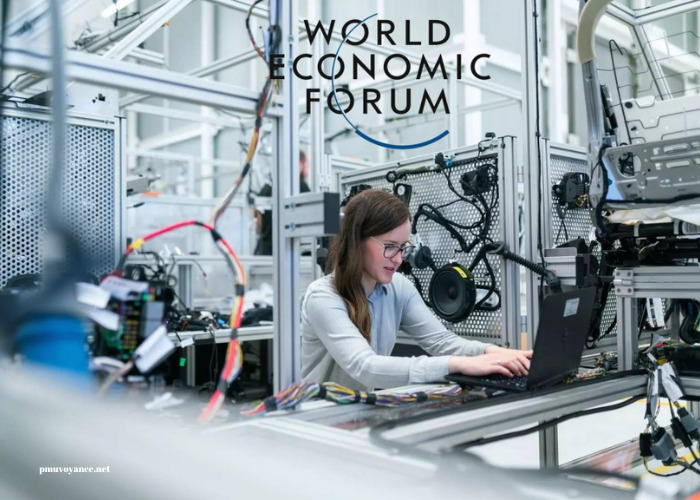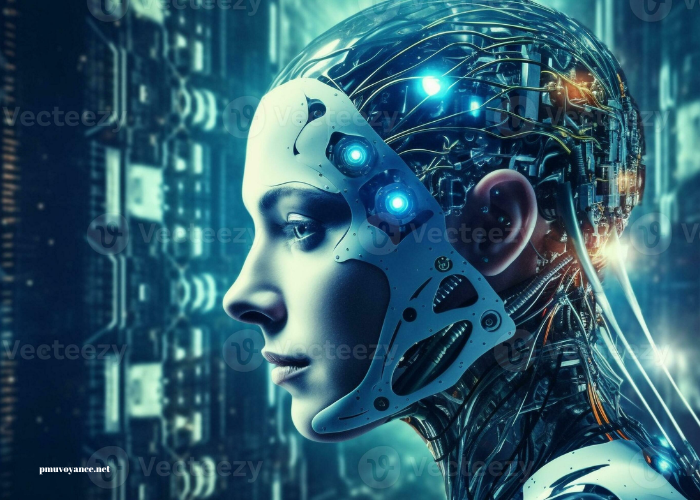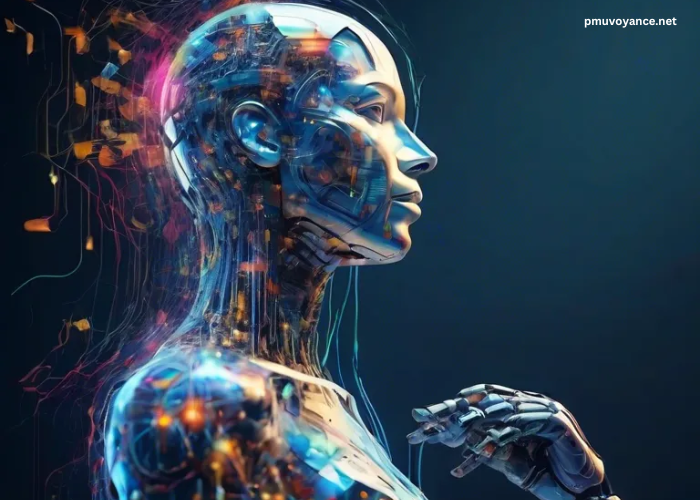The next decade promises to be a thrilling period for technological advancement, with innovations poised to reshape how we live, work, and interact. From artificial intelligence to blockchain technology, various trends will emerge, influencing industries and enhancing our daily experiences. This article delves into the anticipated tech trends for the next ten years, exploring their implications and potential impacts on society.
Artificial Intelligence and Machine Learning
Artificial Intelligence (AI) and machine learning (ML) have already begun to revolutionize many sectors, including healthcare, finance, and education. As we move into the next decade, AI will become even more integrated into our lives.
Enhanced Automation
Automation is expected to escalate in various fields, driven by AI and ML. Businesses will increasingly employ intelligent automation to streamline operations, reduce costs, and improve efficiency. From automated customer service chatbots to advanced robotic process automation in manufacturing, AI will enhance productivity and enable employees to focus on more strategic tasks.
Personalized Experiences
AI will also facilitate more personalized experiences. In e-commerce, for example, algorithms will analyze consumer behavior to provide tailored product recommendations, significantly improving the shopping experience. In the healthcare sector, AI-driven diagnostics will offer personalized treatment plans based on individual patient data, enhancing patient outcomes.
The Rise of 5G Technology
The rollout of 5G technology is set to transform communication and connectivity. With faster speeds and lower latency, 5G will enable various new applications and improve existing ones.
Enhanced Connectivity
5G technology will support the growing Internet of Things (IoT), connecting millions of devices seamlessly. This connectivity will lead to smarter homes, where everything from lighting to heating can be controlled remotely and customized to individual preferences.
Augmented and Virtual Reality
5G will significantly enhance augmented reality (AR) and virtual reality (VR) experiences. These technologies will find applications in various fields, including education, gaming, and training. For instance, AR could enable medical students to practice surgeries in a virtual environment, while VR could provide immersive training experiences for employees in high-risk industries.
Blockchain Technology
Blockchain technology, initially developed for cryptocurrency, is finding applications across various sectors. As we move into the next decade, its potential will be further realized.
Decentralized Finance (DeFi)
The DeFi movement is already gaining momentum, allowing individuals to access financial services without intermediaries. This trend is expected to grow, with decentralized lending, insurance, and trading platforms becoming more mainstream. As DeFi evolves, it could revolutionize how we think about money and financial transactions.
Supply Chain Transparency
Blockchain technology can enhance supply chain transparency and efficiency. By providing a tamper-proof ledger of transactions, blockchain allows stakeholders to track products from origin to delivery. This transparency can help combat fraud, reduce waste, and improve consumer trust.
Quantum Computing
Quantum computing is an area of research that promises to revolutionize data processing and problem-solving capabilities. While still in its infancy, advancements in quantum computing are expected to accelerate over the next decade.
Problem-Solving Capabilities
Quantum computers can process vast amounts of data at unprecedented speeds, making them ideal for complex problem-solving. Industries such as pharmaceuticals, finance, and logistics can leverage quantum computing to optimize operations, reduce costs, and accelerate innovation.
Cybersecurity Implications
As quantum computing advances, so too will its implications for cybersecurity. While it holds the potential to enhance security through advanced encryption methods, it could also pose risks, as quantum computers might break current encryption protocols. This duality will drive a race to develop quantum-resistant security measures.
Sustainable Technology
Sustainability is becoming a critical focus for businesses and consumers alike. The next decade will see a surge in sustainable technologies aimed at reducing environmental impact.
Renewable Energy
Advancements in renewable energy technologies will continue to drive the transition away from fossil fuels. Solar panels, wind turbines, and battery storage systems will become more efficient and cost-effective, making clean energy accessible to more individuals and businesses.
Circular Economy Innovations
The concept of a circular economy, where products are designed for reuse and recycling, will gain traction. Innovative technologies will enable better waste management, resource recovery, and sustainable manufacturing processes. Companies that adopt circular practices will benefit from increased efficiency and reduced costs.
Health Tech Advancements
Healthcare technology will continue to evolve, driven by innovations that enhance patient care, improve outcomes, and reduce costs.
Telemedicine Growth
The COVID-19 pandemic accelerated the adoption of telemedicine, and this trend is expected to persist. Patients will increasingly access healthcare services remotely, leading to greater convenience and improved access to care, particularly for individuals in rural or underserved areas.
Wearable Health Tech
Wearable devices, such as smartwatches and fitness trackers, will become more sophisticated, providing real-time health data and insights. This data will empower individuals to take control of their health, while healthcare providers can leverage it to deliver personalized care.
The Future of Work
The workplace is evolving rapidly, influenced by technology, changing workforce demographics, and shifting employee expectations.
Remote Work and Hybrid Models
The pandemic has accelerated the shift to remote work, and many companies are adopting hybrid work models that allow for flexibility. As technology continues to facilitate remote collaboration, companies will need to adapt their cultures and policies to support a distributed workforce.
AI in Recruitment and HR
AI will play a more significant role in recruitment and human resources. From automating candidate screening to enhancing employee engagement, AI-driven tools will help organizations make data-informed decisions and improve workforce management.
Edge Computing
Edge computing is emerging as a solution to the limitations of cloud computing. By processing data closer to the source, edge computing reduces latency and enhances real-time data analysis.
Improved Performance for IoT Devices
As the IoT expands, edge computing will enable more efficient processing and analysis of data generated by connected devices. This will lead to improved performance, reduced bandwidth usage, and enhanced security, making it a crucial component of future IoT deployments.
Enhanced Real-Time Analytics
Edge computing will also facilitate real-time analytics for industries such as manufacturing, transportation, and healthcare. Organizations will be able to make faster, data-driven decisions, improving efficiency and responsiveness.
Cybersecurity Evolution
As technology advances, so too do the threats to cybersecurity. The next decade will see the evolution of cybersecurity measures to combat increasingly sophisticated attacks.
AI-Driven Security Solutions
AI will play a pivotal role in cybersecurity, with machine learning algorithms detecting and responding to threats in real-time. These AI-driven solutions will improve incident response times and reduce the likelihood of successful attacks.
Zero Trust Architecture
The zero trust security model, which assumes that threats can exist both inside and outside the network, will gain traction. Organizations will implement stricter access controls and continuously verify user identities, enhancing overall security posture.
Ethical Considerations and Regulations
As technology evolves, so do the ethical considerations surrounding its use. The next decade will likely see increased scrutiny of technology’s impact on society.
Data Privacy and Protection
With the proliferation of data, concerns about privacy and protection will intensify. Governments and organizations will need to navigate complex regulatory environments, balancing innovation with the need to protect individuals’ rights.
Ethical AI Development
The ethical implications of AI development will come under increased scrutiny. Developers and organizations will be expected to prioritize fairness, transparency, and accountability in AI systems to mitigate biases and ensure responsible use.
Conclusion
The coming decade promises to be a transformative period for technology, with trends like AI, 5G, blockchain, and sustainable solutions reshaping our lives. As these innovations unfold, they will bring both opportunities and challenges, requiring individuals, businesses, and governments to adapt to an ever-changing landscape. By embracing these trends responsibly, we can harness technology’s power to create a better future for all. The journey ahead is undoubtedly exciting, and those who are prepared will be well-positioned to thrive in this dynamic environment.



